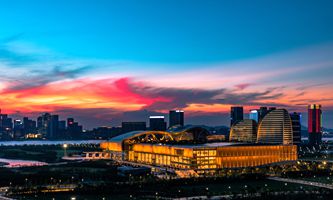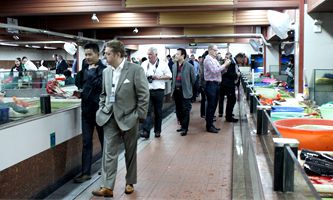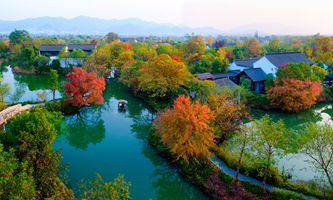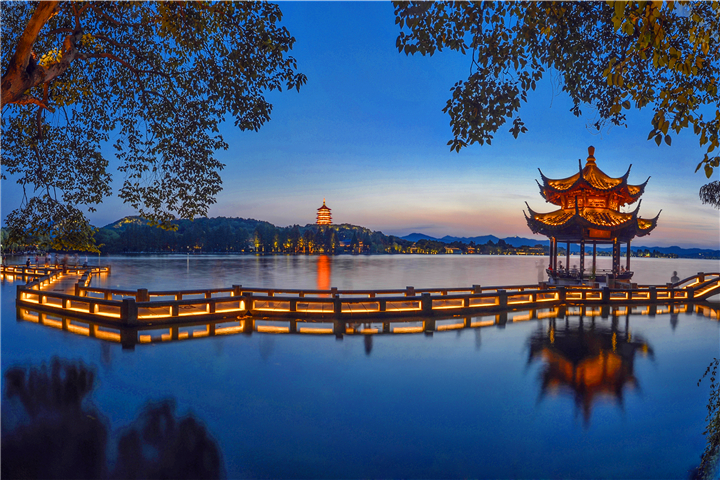Sales blossom at lakeside lotus market
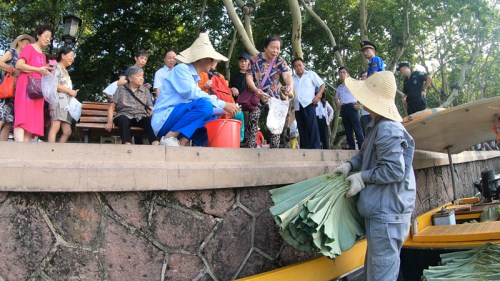
Local residents gather to buy fresh leaves in the morning. Photo by Gao Erqiang / China Daily
The lotus-blooming season lasts for three months, but the team has to work all year round in the water-in sweltering and humid summers as well as freezing winters-to ensure the plants are at their best for the 100 million visitors who flock to the scenic attractions of Hangzhou every year.
In summer, their job is to sail into the forest of lotuses, which grow to a height of about 1 meter above the water, on a hand-paddled boat with just a single seat to remove excess leaves to provide more room for the plants to grow.
As temperatures in this "lotus forest" can soar to as high as 50 C in the hottest part of the day, the team has to finish its work before 8 am. The work cannot be done by modern equipment, as the lotuses are highly delicate and it takes decades of experience to tell just how many leaves should be removed.
"The trick is to provide enough air for the plant, but at the same time create the scene of a carpet of lotus leaves dotted with pink flowers," Chen Laidi said. "The lotuses are like my kids," he added.
The youngest son of a former West Lake maintenance team worker, he took over his father's job in 1979.
As the lotuses at the West Lake-one of the country's best-known freshwater lakes-became increasingly popular over the years, a special team was formed in the early 1990s dedicated to preserving the plants. Now, 23 lotus zones are scattered around the lake.
Chen Laidi said that trade in the lotus leaves and heads started in the late 1990s, when elderly people doing their morning exercises by the lake found workers' boats were full of them, and offered payment.
"For a year or two, they followed wherever our boats went, so we decided to settle on one place and gather all the harvest of the day for sale. The only problem is that demand always exceeds supply, which we can never change," he said.

